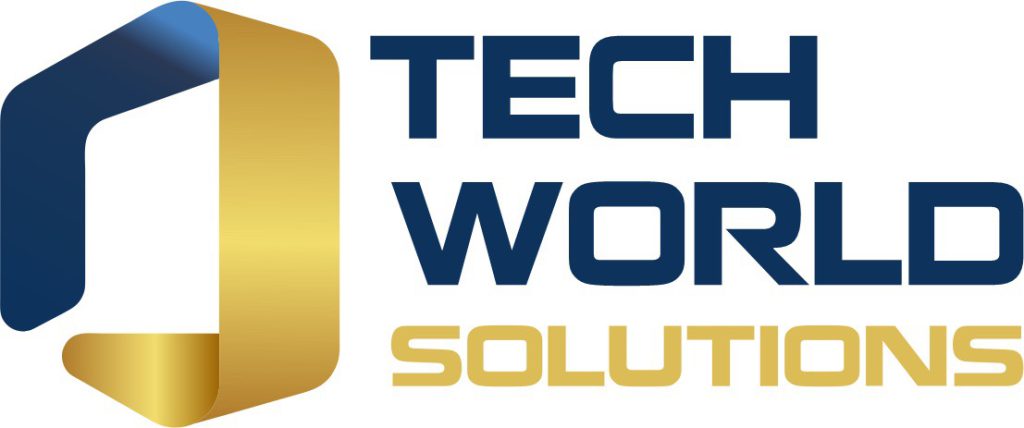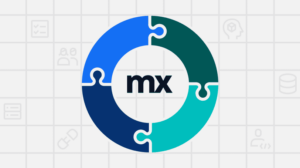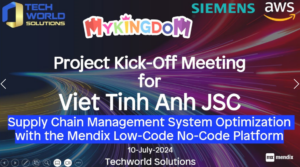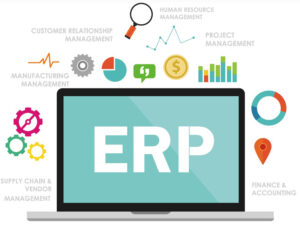CSRD Compliance: A Low-Code Approach to Sustainability Reporting
In the area of corporate responsibility, the European Union’s Corporate Sustainability Reporting Directive (CSRD) represents a transformative step towards greater transparency in non-financial reporting. With a focus on Environmental (E), Social (S), and Governance (G) — the ESG themes — CSRD mandates...
Th9
Technology Trends for 2024: What’s Ahead?
Smart spaces. Hybrid blockchain. Cryptocurrency. Cloud platforms. Drones. Generative AI. AI agents. Extended Reality (XR). Edge computing. Smart automation. Cybersecurity. Quantum machine learning. Internet of Things (IoT) connectivity. Sustainable IT. What do they all have in common? They’re all significant...
Th9
New Teamcenter Extension Makes Low-Code Development Even Easier
The most widely used product lifecycle management software in the manufacturing industry is Siemens Teamcenter. Manufacturers use Teamcenter to connect people, processes, and data across their organizations. Teamcenter customers have long been able to connect to the Mendix application development platform, letting...
1 Bình luận
Th8
Mendix Solutions Kit Delivers Adaptable Solutions to Software Vendors
Software vendors are having a watershed moment. The pace of technology and the choice of how to adapt provide different paths. One pathway adapts to innovation and change with innovation. The other continues to apply traditional development practices that have...
Th8
AI-Assisted Development in Action with Mendix
The technology behind artificial intelligence (AI) requires specialized resources to build and implement. That’s why a lot of organizations are still in their experimentation phase with AI. With Mendix 10.6, we were also experimenting with AI. As Mendix Studio Pro levels up to...
Th8
How to Convert an Excel Spreadsheet Into an App (in Less Than a Minute)
Most of us have a love/hate relationship with spreadsheets. Excel and Google Sheets are the go-to options when businesses need to analyze data, inform decision-making processes, and visualize information. These documents are incredibly easy to create, and they help us...
Th8
How AI is Shaping the Future of the Software Development Lifecycle
In 2021, GitHub and OpenAI released GitHub Copilot, an AI-assisted development tool that completes code across many popular IDEs. Copilot arrived to an excited reception, an enormous signal for how important AI is to coding. That’s a small part of...
Th7
TechworldSolutions Vietnam, in collaboration with Siemens and AWS, held a Project Kick-Off Meeting for VietTinhAnhJSC.
July 10, 2024, #TechworldSolutionsVietnam, in collaboration with #Siemens and #AWS, held a Project Kick-Off Meeting for #VietTinhAnhJSC. #VTA is the owner of #MyKingdom Store, which has over 240 stores. VTA also serves as the official distributor of LEGO in Vietnam...
Th7
What is ERP?
Enterprise resource planning (ERP) is a type of software system that helps organizations automate and manage core business processes for optimal performance. ERP software coordinates the flow of data between a company’s business processes, providing a single source of truth...
Th7
How the Mendix Platform Ecosystem Accelerates Business Impact
In today’s volatile economy, enterprises can face dizzying disruptions or golden opportunities. The outcome often depends on an organization’s assessment and adoption of new technologies and innovations that are transforming market sectors at a torrential pace. To master this complexity,...
Th7










